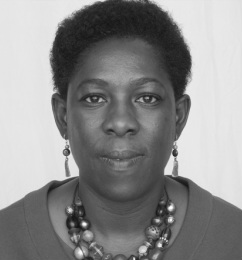I attended the opening event of Africa and Information Technology: Practices, Potentials and Challenges – a conference hosted by the University of Illinois’ Center for African Studies beginning September 11, 2013. The aim of this three-day conference was to catalyze the critical engagement of topics concerning the expansion of access to and development of information technologies on the African continent. In his opening address, Professor Ilesanmi Adesida, University of Illinois’ Vice Chancellor for Academic Affairs and Provost stressed Africa’s rapid pace of change in terms of technological advancements and the expanding potential for technology to be harnessed as a means to pave the way for “alleviating some of the critical problems on the continent and improving the quality of life for Africans.” Adesida maintains that improved broadband access for online education is necessary for disseminating educational videos to spread lifesaving information on AIDS/HIV, agricultural practices, etc.
Following the provost’s opening remarks, Dr. Atieno Adala, guided the audience through her PowerPoint presentation on “The African Virtual University and the Future of Science and Technology Education in Africa”. Adala is the manager of Academic Programs Development and Delivery with the African Virtual University (AVU) and author of Can the virtual university expand access to higher education in Africa? The dialectic of the local and the global. According to Adala’s presentation, the AVU is a pan-African intergovernmental organization that started out as a World Bank project in 1997 with the goal of expanding information and communication technologies (ICT) in Africa’s colleges and universities by developing and disseminating eLearning online courses (modules), degree granting programs, training materials, and workshops that cover a number of disciplines including biology, chemistry, food security, ICT basic skills, mathematics, and renewable energy. Modules were released (in English, Portuguese, and French) as open education resources that any student in higher-learning institutions can use for professional development and additional degrees. These modules are accessed by 1.7 million users worldwide in 201 countries and territories. There are also courses offered within the AVU Capacity Enhancement Program to train institutions’ faculty in up open distance and eLearning (ODeL) technologies, thereby enabling partner institutions to successfully design, develop, and manage ODeL programs.

Dr. Atieno Adala presented on the African Virtual University during the Africa and IT Conference.
In 2003 the AVU adopted distance and eLearning as a model for instruction and has contributed to training more than 43,000 students enrolled in African colleges and universities. The AVU has partner institutions all over Africa, including Francophone and Anglophone nations and, according to Adala, has cultivated a flexible set of courses and training materials to accommodate differences in Anglophone and Francophone curriculums. The AVU works with partner institutions, such as Kenyatta University and the University of Dar es Salaam, to design and develop online degree programs, setup ODeL centers, and provide internet connectivity when possible. Other AVU partners include Addis Ababa University, the University of the Gambia, and others from Ghana, Cameroon, Mali, and Niger. Adala reports that the AVU boasts 597 scholarships awarded to students during the program’s first phase.
Despite the program’s successes, Adala also underlined several challenges to eLearning in Africa including, but not limited to unreliable internet connectivity, especially in rural areas; the high cost of Internet connectivity; intermittent power disruptions; unstable access to computers and other Internet enabling devices such as smartphones; and a scarcity in human resources such as personnel with training in ICT. The disparity between people who have access to Internet and ICTs and the ‘have-nots’ has not yet been bridged to provide equal access to the benefits of eLearning.
Shortly after leaving the first session and reviewing my notes, I returned to Adesida’s statement that “improved broadband access for online education is necessary for disseminating educational videos to spread lifesaving information on AIDS/HIV, agricultural practices…” I reflected on the fact that many of the targeted groups in need of this information are disproportionately vulnerable, underserved, and located in rural areas where internet connections are oftentimes unpredictable. Conference attendees were able to explore this issue further in the Day-Three session entitled “Extending Access: Tackling the Digital Divide,” which was presented by Professors Sharon Tettegah, Abu Bah, and Jon Gant who is the director for the University of Illinois’ Center for Digital Inclusion at the Graduate School of Library and Information Science.
I’m positing this question to our readers: Are there ways in which online programs such as the AVU can address problems of the Digital Divide (technology gap) between the information rich, and the information poor? I encourage you all to check out resources at the University of Illinois’ library on the Digital Divide, ICTs, and public policies on these topics. I recommend From digital divide to digital opportunity and Into or out of the digital divide?: a perspective on ICTs and development in Southern Africa, among many other insightful books. Feel free to post your comments!

